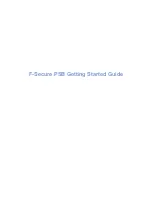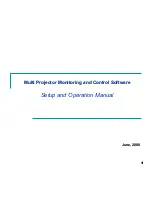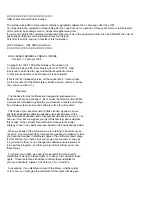
Updating Your Anti-virus Software
138
Management Edition
Marking shares as null session shares
All repository shares created by the Management Edition program are
automatically marked as null session. Therefore, the only time that you must
manually mark a share as null session is when you have moved a share
location or have inherited an existing share.
Before you can begin installing software updates to a member machine, you
must mark this relocated or inherited share containing the updates as a null
session share, so that the local system service can access it. When the
Management Edition program installs the VirusScan program, it installs the
local Task Manager (which performs .DAT updates) and Alert Manager as
local system services, instead of services running as named accounts. The Task
Manager cannot copy .DAT files from a normal share; for a local system to
access a share, you must mark the share as a null session share. Similarly, the
Alert Manager cannot access the folder to which alerts are reported, unless the
share is marked as a null session share.
Follow these steps:
1. Go to the machine hosting the share.
NOTE:
For the Alert Manager, first create a share pointing to the
Alert Manager folder to which alerts are reported. For example:
NET SHARE AMFOLDER=C:\PROGRAM FILES\
NETWORK ASSOCIATES\NETSHIELD\ALERT
2. Click
Start
on the Windows taskbar.
3. Type
regedt32
(not regedit, because that displays the contents of the
registry in hexadecimal and is more difficult to work with).
4. Go to HKEY_LOCAL_MACHINE\System\CurrentControlSet\
Services\LanManServer\Parameters.
5. Add the share names (e.g., AMFOLDER) to the
NullSessionShares
key
to mark them as null session shares.
















































